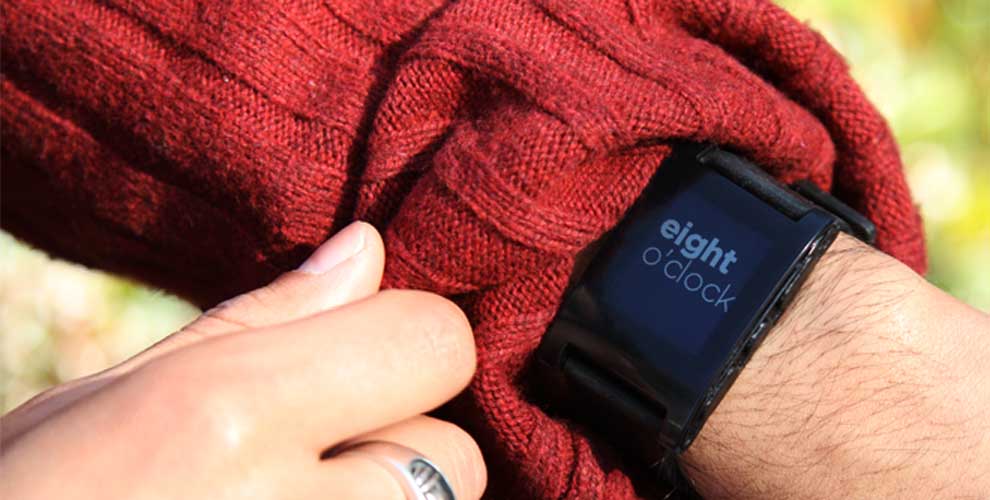From Kickstarter to Best Buy: A Smart Watch’s Journey
Here’s a new sign of Kickstarter’s legitmacy as a launchpad for new gadgets and of growing enthusiasm for smart watches: Pebble Technology, which last year raised $10.2 million for its smart watch on the crowd-funding platform, said Tuesday that consumer electronics retailer Best Buy will start selling the device.

The black version of the Pebble is already available on Best Buy’s website, and it will be available at the retailer’s stores across the U.S. from Sunday for $150. Best Buy also plans to start selling a red version of the watch next month.
Pebble, which works with iPhones or late-model Android smartphones, has a black-and-white e-paper screen. It can alert the wearer of incoming calls and emails to his or her phone, and also be loaded with third-party apps to do things like pedometer-style activity monitoring. People that backed Pebble on Kickstarter began receiving their devices in January, and since then it has also been available for general “pre-order” on the company’s website for $150. Those orders are slated to ship this summer.
While it wasn’t the first smart watch to hit the market, the Pebble was the first to gain widespread appreciation. That has opened the door for other new companies, as well as for consumer electronics giants to launch smart watches. It also seems to have helped revive Sony’s smart watches, which the company has made for years without significant traction. Given how limited physical shelf space is, availability of the Pebble through Best Buy shows just how rapidly the market has shifted in favor of smart watches (and, potentially, other wearable devices like Google Glass). It also shows how seriously traditional retail is taking success on Kickstarter. Confirmation that signal is worth paying attention to will require waiting to see if people actually go to the store and buy Pebble watches.
Keep Reading
Most Popular
Large language models can do jaw-dropping things. But nobody knows exactly why.
And that's a problem. Figuring it out is one of the biggest scientific puzzles of our time and a crucial step towards controlling more powerful future models.
The problem with plug-in hybrids? Their drivers.
Plug-in hybrids are often sold as a transition to EVs, but new data from Europe shows we’re still underestimating the emissions they produce.
Google DeepMind’s new generative model makes Super Mario–like games from scratch
Genie learns how to control games by watching hours and hours of video. It could help train next-gen robots too.
How scientists traced a mysterious covid case back to six toilets
When wastewater surveillance turns into a hunt for a single infected individual, the ethics get tricky.
Stay connected
Get the latest updates from
MIT Technology Review
Discover special offers, top stories, upcoming events, and more.